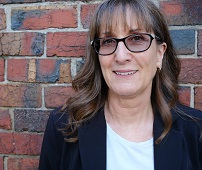The word emerging conjures up various images, shadowy figures appearing through the fog, the answer to a puzzle gradually revealed, a butterfly breaking through its pupate. According to the Merriam-Webster Dictionary online, the simple definition of “emerging” is “newly created or noticed and growing in strength or popularity: becoming widely known or established.” There is no mention of age in the definition, or in any of the images, apart perhaps, from the butterfly. So it was with gratitude and enthusiasm I read this article, put on Facebook by Writers Victoria: http://www.emergingwritersfestival.org.au/writing-forums-emerging-age/
As an “emerging writer” in my mid-fifties, it was heartening to discover at one of the forums held during the Emerging Writers’ Festival in Melbourne this June, the panel agreed “that writers emerge at any age and should all be supported and encouraged, and that the current focus on youth could well discourage older writers from being actively involved in the writing community.
History reveals several well-known authors who were first published, or made their names within literary circles, late in life. Laura Ingalls Wilder began writing in her forties and her novel Little House in the Big Woods, was published when she was 64. Helen DeWitt’s first novel The Last Samurai was published when she was in her forties. Not only did Frank McCourt begin to write after he retired, but his first book, Angela’s Ashes, was published when he was 66 years old. Anna Sewell, author of Black Beauty, began to write at 51, selling her only published work at 57 and, unfortunately dying just five months after the novel was published. There are plenty more examples.
For many potential writers and authors, and indeed all creatives, the act of creating all too often takes second place to the act of earning a living. Gone are the days of finding a patron or philanthropist to take care of every day matters such as paying the bills or putting food on the table. So we plug along at our day jobs, fulfill our obligations to family or friends and fit our writing into the cracks of time in between. Sometimes we cope and sometimes we crash. Sometimes we have spent years and even decades scribbling lines on bits of paper, lines which often never see the light of day. But sometimes we do manage to put together the correct amount of words for whatever genre we write and sometimes we gather enough courage to put it out in the world and sometimes it is taken up by a publisher, or perhaps we self-publish. But just because some of us are older, doesn’t necessarily mean we have the confidence or support or skill or ability to see our passion become anything more than another manuscript for the bottom drawer.
I was pleased to read the recommendations of the panel. Changing the language, ensuring inclusion, providing mentoring opportunities, altering the culture and offering grants to those who need them are all positive steps to encourage all writers, even those who are no longer in their twenties or thirties such as myself, as we attempt to emerge in an industry where solitude is the nature of the work and failure is more prevalent than success.



